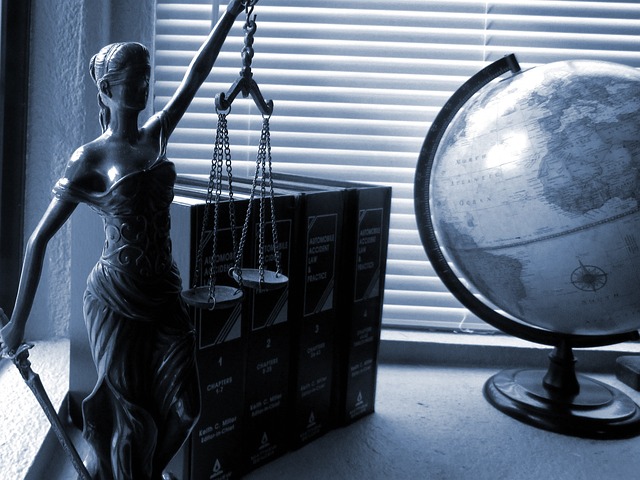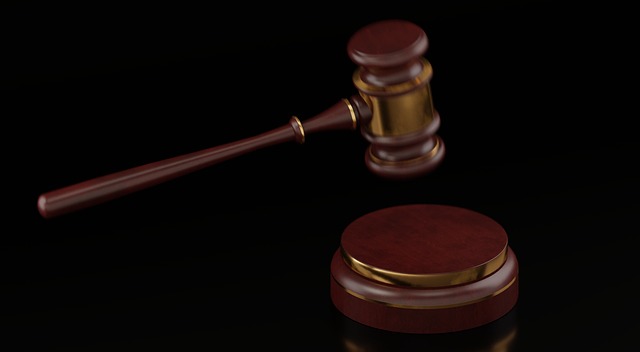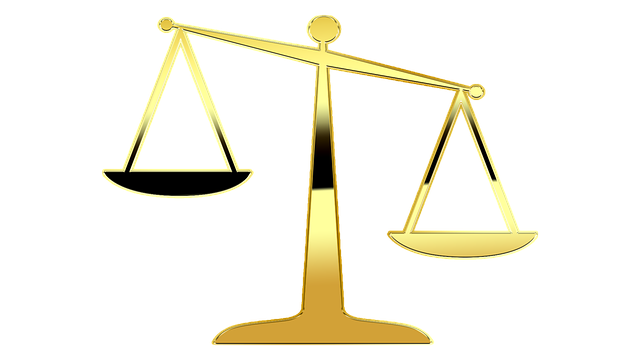Category: Lakewood Colorado Personal Injury Claims
Lakewood Colorado Personal Injury Claims: A Comprehensive Analysis
Introduction
In the complex landscape of legal practices, personal injury claims stand as a cornerstone of civil litigation, offering individuals a means to seek justice and compensation for harm suffered due to another party’s negligence or intentional actions. Within this broader domain, Lakewood Colorado Personal Injury Claims emerge as a specialized area, catering to the unique legal and cultural dynamics of the vibrant city of Lakewood, Colorado. This article delves into the intricacies of these claims, exploring their historical evolution, global impact, economic implications, technological influences, regulatory frameworks, challenges, and future prospects. By examining these facets, we aim to provide an authoritative guide for both legal professionals and individuals navigating this complex domain in Lakewood.
Understanding Lakewood Colorado Personal Injury Claims
Definition and Core Components
Lakewood Colorado Personal Injury Claims refer to legal actions initiated by individuals (plaintiffs) against entities or individuals (defendants) responsible for causing them physical harm, property damage, or other losses due to negligence, intentional torts, or product liability. These claims encompass a wide array of incidents, from automobile accidents and slip-and-fall injuries on premises to medical malpractice and product defects.
Key Components:
- Negligence: The most common basis for personal injury claims, where one party fails to exercise reasonable care, leading to harm or loss to another.
- Intentional Torts: Actions intended to cause harm, such as assault, battery, false imprisonment, or fraud.
- Product Liability: Claims arising from defective products that cause injuries or damage.
- Premises Liability: Suits against property owners or managers for injuries sustained on their premises due to unsafe conditions.
- Medical Malpractice: Legal actions against healthcare professionals for professional negligence resulting in patient harm.
Historical Context and Significance
The concept of personal injury claims has deep roots in common law jurisdictions, with early case law setting precedents for liability and damages. In the United States, the American legal system, influenced by English common law, has developed a robust framework for personal injury litigation. Lakewood Colorado’s legal landscape is no exception, reflecting the broader trends within Colorado and the U.S.
Historical Evolution:
- Early Common Law: Established principles of duty of care, breach of duty, causation, and damages formed the foundation for personal injury cases.
- Industrial Revolution: The rise of industries led to an increase in workplace accidents, prompting legislative reforms and the development of workers’ compensation laws.
- 20th Century Growth: Personal injury claims expanded to cover a broader range of incidents, with advancements in medical science and technology introducing new complexities.
- Modern Era: The digital age has brought about unique challenges, such as cyber liability and e-commerce related injuries, requiring updated legal frameworks.
Significance:
Personal injury claims serve multiple critical functions:
- Justice and Accountability: Ensure that those responsible for causing harm are held accountable and compensate victims for their losses.
- Deterrence: Act as a deterrent to prevent future negligent or intentional behaviors that could result in injuries.
- Compensation: Provide financial relief to individuals whose lives have been impacted by someone else’s actions, helping them recover and rebuild.
- Legal Precedent: Court decisions in personal injury cases contribute to the development of legal principles and precedents, shaping future litigation.
Global Impact and Trends
Personal injury claims are not confined to national borders; they operate within a global legal and cultural framework, influenced by international agreements, human rights laws, and varying legal traditions. Lakewood Colorado’s claims are part of this larger conversation, reflecting both local and international trends.
Key Global Trends:
- Harmonization of Laws: Many countries have harmonized their personal injury legislation to facilitate cross-border disputes and ensure consistent standards of protection.
- Human Rights and Consumer Protection: International human rights laws and consumer protection treaties influence personal injury claims, emphasizing the rights of individuals to safety, health, and fair treatment.
- Technology’s Role: The digital age has led to a rise in cyber liability claims globally, with countries adopting new legislation to address these emerging issues.
- Cross-Border Litigation: With globalization, cross-border personal injury claims have increased, requiring international legal cooperation and conflict of laws principles.
Regional Variations:
The interpretation and application of personal injury laws vary across regions, influenced by cultural norms, economic development, and historical legal traditions:
| Region | Key Features |
|---|---|
| North America | Stricter liability rules, emphasis on compensation for non-economic damages (pain and suffering), and a victim-friendly legal system. |
| Europe | Diverse legal systems with varying degrees of strict liability; some countries have more stringent product liability laws. |
| Asia Pacific | Rapidly evolving legal frameworks influenced by Western principles but adapting to local customs; emerging economies face challenges in implementing effective personal injury legislation. |
| Middle East | Generally, tort law is less developed, and compensation tends to be lower; cultural and religious factors play a significant role in dispute resolution. |
Economic Implications of Personal Injury Claims
Personal injury litigation has substantial economic implications for individuals, businesses, and the broader economy. In Lakewood, these impacts are no different, with claims affecting local businesses, insurance premiums, and the city’s overall economic health.
Financial Impacts:
- Compensation Payments: Verdicts or settlements in personal injury cases can be substantial, especially in high-profile or severe injury cases. These payments provide compensation for medical expenses, lost wages, pain and suffering, and other damages.
- Insurance Costs: Business and individual insurance premiums are influenced by the frequency and severity of personal injury claims. In Lakewood, this may impact local businesses, particularly those in industries with higher risk profiles.
- Economic Growth and Tourism: A robust legal system for personal injury claims can enhance a city’s reputation for justice and fairness, attracting visitors and potential residents. Conversely, frequent high-dollar settlements might deter investment or tourism.
- Public Resources: Personal injury cases may involve significant public resources, especially in complex medical malpractice or product liability suits, straining local legal aid and court systems.
Technological Influences on Claims
Technology has revolutionized the personal injury claims landscape, introducing new challenges and opportunities. In Lakewood, these technological advancements have specific implications for various aspects of the claims process.
Digital Transformation:
- E-Discovery: Electronic discovery (e-discovery) facilitates the efficient exchange of digital evidence in litigation, streamlining the claims process.
- Online Legal Research: Attorneys and plaintiffs can access vast legal resources online, enabling more informed decision-making and strategic planning.
- Social Media and Digital Evidence: Social media posts and digital communications can serve as crucial evidence in personal injury cases, providing insights into damages or liability.
- Telemedicine and Remote Expert Testimony: The rise of telemedicine has expanded access to medical experts, while remote expert testimony allows for more flexible and cost-effective depositions.
- Cyber Liability Insurance: As cyber attacks become more prevalent, individuals and businesses are purchasing cyber liability insurance to protect against financial losses from data breaches or cyber-related injuries.
Regulatory Frameworks and Legal Environment
The legal environment in which personal injury claims operate is shaped by state and local laws, court decisions, and regulatory bodies. In Colorado and Lakewood, this framework ensures fairness, predictability, and accountability in dispute resolution.
Key Regulatory Bodies and Laws:
- Colorado Revised Statutes (CRS): The CRS provides the statutory foundation for personal injury law in Colorado, covering areas such as negligence per se, statutes of limitations, damages, and medical malpractice standards.
- Lakewood Municipal Code: Local ordinances may supplement state laws, addressing specific issues like premises liability or local business regulations that could impact claim outcomes.
- Colorado Judicial Branch: The state’s court system interprets and applies the law, with the Colorado Supreme Court setting precedents that guide lower courts’ decisions.
- Colorado Bar Association: This organization promotes professional standards and ethics among attorneys practicing in Colorado, ensuring competent representation for plaintiffs and defendants.
- Insurance Regulations: The Colorado Division of Insurance oversees insurance practices, including personal injury insurance policies, ensuring consumer protection and fair pricing.
Challenges in Lakewood Colorado Personal Injury Claims
Despite the robust legal framework, personal injury claims in Lakewood face several challenges that can impact their outcome and efficiency. Addressing these issues is crucial for maintaining a fair and accessible justice system.
Common Challenges:
- Complex Medical Issues: Medical malpractice cases often involve complex medical jargon and expert testimony, making them challenging for both plaintiffs and defendants to navigate.
- Statutes of Limitations: Strict time limits on filing claims can be a significant barrier, especially in cases with delayed onset of injuries or where liability is difficult to ascertain.
- Underinsurance and Uninsured Parties: Many individuals lack adequate insurance coverage, while others may be uninsured, making it challenging to collect full compensation for damages.
- Resource-Intensive Litigation: Personal injury cases can be lengthy and costly, requiring extensive legal research, expert opinions, and court appearances.
- Public Perception and Bias: Negative stereotypes or public perception of certain plaintiff groups (e.g., workers’ compensation claimants) may influence juror bias, impacting case outcomes.
- Access to Justice: Individuals with limited resources or low-dollar claims may face barriers in accessing legal representation, exacerbating existing inequalities.
Future Prospects and Recommendations
The future of Lakewood Colorado Personal Injury Claims is shaped by ongoing legal developments, technological advancements, and societal changes. To ensure a fair and efficient system, several recommendations can guide the way forward:
Strategic Directions:
- Technological Integration: Embrace technology to streamline processes, enhance e-discovery capabilities, and improve access to justice through online legal resources and remote services.
- Legal Education and Outreach: Increase public awareness of personal injury rights and responsibilities through legal education programs and community outreach initiatives.
- Simplifying Legal Procedures: Review and update court rules and procedures to reduce complexity and cost, making the claims process more accessible for all parties.
- Addressing Underinsurance and Uninsured Issues: Implement strategies to ensure adequate insurance coverage and protect victims of uninsured or underinsured parties.
- Expert Witness Training: Develop programs to educate and certify medical and other experts testifying in personal injury cases, enhancing the quality and consistency of expert testimony.
- Diverse Juror Pools: Encourage diverse jury pools to reduce potential bias and ensure fair representation of all community members.
- Legal Aid and Access to Representation: Expand access to legal aid programs and provide resources for low-income individuals to secure competent legal counsel.
- Regulatory Review: Periodically review and update insurance regulations, statutes of limitations, and other laws to reflect changing societal needs and technological advancements.
Conclusion
Lakewood Colorado Personal Injury Claims operate within a complex interplay of legal, economic, and technological factors. By understanding these dynamics, stakeholders can navigate the challenges and capitalize on opportunities to create a fair, efficient, and accessible justice system. Through strategic initiatives and collaborative efforts, Lakewood can ensure that its personal injury claims process serves the best interests of all residents and visitors while upholding the principles of justice and fairness.
Maximize Lakewood, CO Car Crash Compensation – Free Consultation, Expert Legal Aid
Maximize Compensation: Expert Lakewood Construction Accident Lawyer Offers Free Consultation.
Free Consultation: Save Thousands with Top-Rated Lakewood DUI Defense Lawyers
Unlock Success in Lakewood Property Disputes: Free Consultation, Top Results!
Lakewood, CO: Maximize Your Personal Injury Claim Settlements – Free Consult!
Lakewood, Colorado’s Top Lawyer Fights for Your Workplace Rights & Compensation
Unlock Legal Clarity & Save on Lakewood CO Paternity Testing & Claims

Facing a personal injury claim in Lakewood, Colorado? Navigating legal complexities can be daunting,…….
Lakewood CO’s Top Attorneys: Win Your Property Negligence Claim, No Fee Until Settlement
Maximize Compensation for Your Lakewood, CO Auto Crash Claims – Free Consultation

Are you a resident of Lakewood, Colorado, looking to secure the financial compensation you deserve a…….







